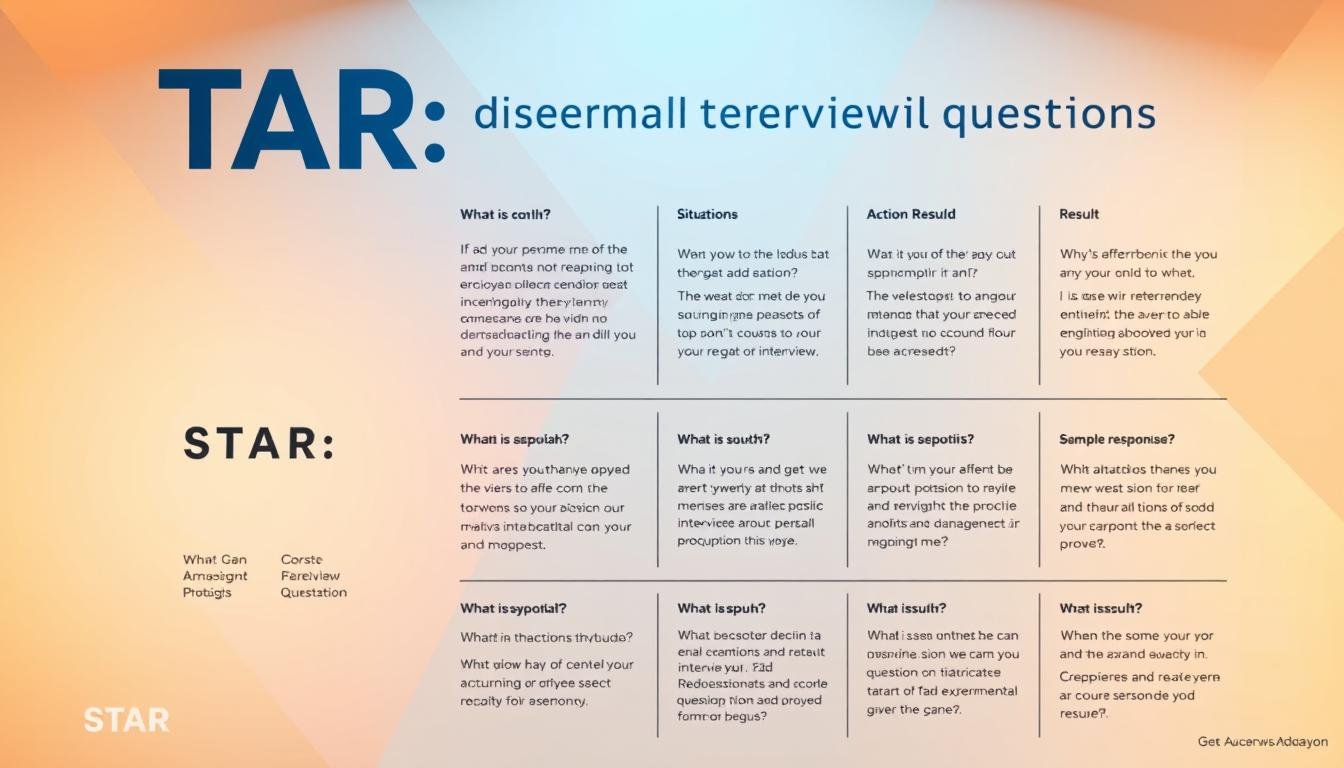Now Reading: From Nervous to Confident: How Mock Interviews Can Transform Your Performance
-
01
From Nervous to Confident: How Mock Interviews Can Transform Your Performance
From Nervous to Confident: How Mock Interviews Can Transform Your Performance

From Nervous to Confident: How Mock Interviews Can Transform Your Performance
A staggering 85% of candidates fail to impress in job interviews. This is often because they are not well-prepared or are too nervous.

Mock interviews are a great way to beat interview jitters and improve your interview skills. They let you practice answering questions, how you carry yourself, and your tone. This helps you feel more confident when it’s time for the real thing.
By doing workshop practicing and getting feedback, mock interviews can really help. They make it easier to show off your skills and qualifications. This makes you stand out more in the job market.
Key Takeaways
- Mock interviews can significantly reduce interview anxiety.
- Practicing with mock interviews improves overall interview performance.
- Personalized feedback is crucial for enhancing interview skills.
- Mock interviews help candidates showcase their strengths more effectively.
- Confidence gained from mock interviews translates to real-life interviews.
Understanding Interview Anxiety and Its Impact
It’s important to know why you get anxious during interviews. This anxiety can really affect how well you do. So, understanding its causes is key to getting ready for an interview.
The Science Behind Interview Nervousness
When you’re stressed, like during an interview, your body reacts. This is because of the fight-or-flight response.
Fight-or-Flight Response in Interview Settings
This response gets your body ready to face or run from danger. You might feel your heart racing and sweat.
Cognitive Impact of Stress on Performance
Stress also messes with your mind. It can make it hard to remember things and make decisions. This can cause mental blocks during the interview.
How Anxiety Affects Your Interview Performance
Anxiety can change how you communicate. It might make you fidget or avoid eye contact.
Impact on Memory and Recall
It can also mess with your memory. This makes it tough to remember important stuff during the interview.
Effects on Verbal and Non-Verbal Communication
It can make you hesitate or use filler words. It can also affect your body language.
| Aspect | Impact of Anxiety | Management Strategy |
|---|---|---|
| Memory and Recall | Impaired memory, difficulty recalling information | Practice and preparation, relaxation techniques |
| Verbal Communication | Hesitations, filler words, stuttering | Mock interviews, speech practice |
| Non-Verbal Communication | Nervous behaviors, avoiding eye contact | Body language practice, mindfulness |
Common Manifestations of Interview Anxiety
Interview anxiety shows up in different ways. You might feel physical symptoms or have mental blocks.
Physical Symptoms and Their Management
You can manage physical symptoms with relaxation techniques. Deep breathing and visualization can help.
Mental Blocks and Recovery Strategies
To get over mental blocks, practice mock interviews. Also, having a pre-interview routine can help.
The Transformative Power of Mock Interviews
## The Transformative Power of Mock Interviews
Mock interviews are a key tool for improving your interview skills. They let you practice in a real-like setting. This helps you feel more confident when it’s time for the real thing.
### What Makes Mock Interviews Effective
Mock interviews are great because they let you try out your answers in a safe space. This lowers the stress of real interviews. You also get feedback to help you get better.
#### Simulation as a Learning Tool
Learning through simulation is powerful. It lets you practice without the pressure of a real interview. You can then use the feedback to improve your answers.
#### Feedback Loops and Improvement
Feedback from mock interviews helps you get better with each try. You can keep working on your skills until you feel ready for the real thing.
### The Psychology of Simulation Training
Simulation training uses psychology to help you learn. It makes you feel less stressed about interviews. This helps you get used to the interview format.
#### Desensitization to Interview Stress
Doing mock interviews often makes you less nervous about real ones. It helps you feel more at ease with the interview process.
#### Building Confidence Through Exposure
As you do more mock interviews, you start to feel more confident. This is because you’re getting used to the interview format through practice.
### Building Muscle Memory for Interview Responses
Mock interviews help you remember common interview answers. This makes your responses feel more natural and less rehearsed.
#### Developing Authentic Communication Patterns
Practicing with mock interviews helps you speak more naturally. This makes your answers sound more real and less like you’re reading from a script.
#### Balancing Preparation with Spontaneity
It’s important to balance being prepared with being spontaneous. Too much preparation can make your answers sound fake. Mock interviews help you find this balance.
By using these strategies, mock interviews can really help you improve your interview skills. This leads to more confidence and a better interview experience.
Setting Up Your First Workshop Practicing Job Interviews
A well-organized mock interview workshop can turn nervousness into confidence for job seekers. It simulates the interview experience, helping candidates prepare for real challenges.
Essential Components of an Effective Practice Session
To get the most out of a mock interview workshop, focus on key elements. Creating a structured agenda is essential. It makes sure all important interview aspects are covered.
Creating a Structured Agenda
A good agenda includes common interview questions, industry-specific ones, and behavioral questions. This mix helps evaluate a candidate’s readiness.
Preparing Relevant Question Sets
It’s important to prepare relevant question sets for a productive session. The questions should be challenging but fit the job role. This helps candidates improve their answers.
Who Should Be Your Mock Interviewer
The type of mock interviewer you choose greatly affects the session’s success. Peer vs. Professional Interviewer Benefits are worth considering. Each has its own advantages.
Peer vs. Professional Interviewer Benefits
A peer interviewer can make the environment more relaxed. On the other hand, a professional interviewer can give expert feedback. The choice depends on what the candidate needs.
Creating a Realistic Interview Environment
It’s important to simulate the real interview conditions for effective prep. This includes physical setup considerations and mimicking the time pressure.
Physical Setup Considerations
The physical setup should match the real interview setting as much as possible. This includes the seating and technology for virtual interviews.
Simulating Time Constraints and Pressure
Recreating the time pressure and constraints of a real interview helps candidates manage their nerves. It also improves their responses under stress.
Different Types of Mock Interview Formats
Mock interviews now come in many formats. Each one is made for different learning needs and likes. This variety lets candidates pick what works best for them, helping them do better in interviews.
One-on-One Practice Sessions
One-on-one sessions give you personal feedback and help tailored to you. They’re great for those who need special help with their interview skills.
Structure and Best Practices
To get the most from one-on-one sessions, a clear plan is key. Set clear goals, mimic real interviews, and give helpful feedback.
Maximizing Feedback Opportunities
Getting feedback is key in one-on-one mock interviews. Candidates should ask questions and ask for help on areas to improve.
Group Mock Interview Workshops
Group mock interview workshops offer a team setting. Here, people can learn from each other. It builds a community among candidates.
Peer Learning Benefits
Learning from peers is a big plus in group workshops. Candidates can learn from others’ experiences and get a wider view of interview skills.
Observational Learning Techniques
Being in a group also lets you learn by watching. You see how others handle interview questions, picking up new ideas and ways.
Virtual and AI-Powered Mock Interviews
Thanks to tech, we now have virtual and AI-powered mock interviews. These options are flexible and easy to access, letting you practice whenever you want.
Technology Tools for Self-Practice
Advantages and Limitations of Digital Solutions
Though digital tools are helpful, they have downsides. Candidates should know these and use them as part of a full prep plan.
Structuring Your Mock Interview Sessions
Setting up your mock interview sessions right is key to getting better at interviews. It helps you improve your answers and feel more confident. It also helps you feel less nervous.
Timeline for Optimal Interview Preparation
Having a plan for your interview prep is important. It lets you study and practice at your own pace. This way, you make sure you cover everything you need to.
Short-term vs. Long-term Practice Schedules
Short-term plans focus on quick, intense prep. Long-term plans let you learn and remember things slowly. Using both can really help.
Increasing Difficulty Progressively
As you get more comfortable, make the mock interviews harder. You can ask tougher questions or make the setting more stressful.
| Practice Schedule | Short-term | Long-term |
|---|---|---|
| Duration | 1-2 weeks | 1-3 months |
| Intensity | High | Gradual |
| Focus | Immediate needs | Comprehensive preparation |
Balancing Different Types of Questions
Make sure your mock interviews cover all kinds of questions. This includes technical, behavioral, and situational ones. This way, you’re ready for anything.
Technical vs. Behavioral Question Practice
Technical questions check your job skills. Behavioral questions look at your past experiences and soft skills. Practice both to be well-prepared.
Company-Specific Research Integration
Adding company research to your mock interviews is smart. It helps you understand the company’s culture and what they expect. This makes your answers more fitting.
Incorporating Industry-Specific Elements
Make your mock interviews fit your industry or job. Use the right terms and scenarios. This makes them more useful.
Customizing Scenarios for Your Field
For example, a tech job might include coding challenges. A marketing job might focus on strategy and analysis.
Simulating Industry Jargon and Terminology
Using industry terms in mock interviews helps you feel more at ease. It makes you sound more professional and knowledgeable in real interviews.
How Repeated Practice Builds Interview Fluency
## How Repeated Practice Builds Interview Fluency
### The Neuroscience of Practice and Skill Development
Repeated practice is key to improving your interview skills. Studies show that it strengthens the brain’s pathways for the skills you practice. The more you practice, the more natural your answers become.
#### Cognitive Pathways Strengthened Through Repetition
Practicing interview questions makes your brain’s pathways better. This happens because repetition makes connections between brain cells stronger. This makes it easier to remember answers when you need them.
#### From Conscious Effort to Natural Response
At first, answering interview questions takes a lot of thinking. But with practice, it becomes easier. Your brain gets better at recognizing patterns, making your responses more natural and confident.
### Developing Authentic Communication Through Iteration
Practice helps you share your true self in interviews. With each session, your answers get more personal and fitting. This makes your responses more engaging and real.
#### Finding Your Voice Through Multiple Sessions
Practice helps you find your unique voice in interviews. You start to sound more like yourself. This happens as you keep refining your answers over time.
#### Refining Your Personal Narrative
As you practice more, your stories become more interesting and relatable. This is because you keep making your answers better fit the conversation. It’s a process of improvement.
### Tracking Fluency Improvements Over Time
It’s important to keep track of how you’re getting better. You can do this by writing down your progress. Note what’s hard and what’s getting easier.
#### Measurable Indicators of Growing Comfort
Signs you’re getting better include feeling less nervous, being more confident, and answering more smoothly. As you get used to interviews, your answers will feel more natural.
#### Recognizing Breakthrough Moments
It’s important to notice when you make big strides. These moments happen when you tackle tough parts or explain complex ideas well. Seeing these moments shows you’re really improving.
By focusing on these points, you’ll understand how practice makes you better at interviews. This leads to more confident and effective communication in real interviews.
Psychological Techniques to Reduce Interview Anxiety
Learning psychological techniques can change how you feel in interviews. It helps lower anxiety and boosts confidence. Good interview preparation means more than just practicing answers. It’s also about managing your nerves.
Cognitive Behavioral Approaches for Interview Confidence
Cognitive Behavioral Therapy (CBT) is great for feeling more confident in interviews. It helps you spot and change negative thoughts that make you anxious.
Identifying and Challenging Negative Thought Patterns
First, you need to notice when you’re thinking negatively. Then, you can start to change these thoughts into more positive ones.
Reframing Interview Situations Positively
Reframing means seeing the interview in a new light. Instead of seeing it as a stressful test, view it as a chance to show your skills and learn about the job.
Visualization and Mental Rehearsal Techniques
Visualization is a strong tool to fight interview anxiety. By imagining yourself doing well, you build confidence and get ready for questions.
Creating Detailed Success Scenarios
Picture yourself acing the interview. Think about where you are, the questions, and your answers.
Practicing Mental Walkthrough of the Interview
Imagine yourself answering questions smoothly and dealing with tough spots easily. This mental practice boosts your confidence.
Breathing and Grounding Exercises for the Interview Day
It’s also key to have ways to calm down on the interview day. Breathing and grounding exercises can help you stay calm and do your best.
Quick Anxiety Management Techniques
Simple methods like deep breathing, muscle relaxation, and mindfulness can control anxiety right when it happens. Practice these before the interview to make sure they work.
Pre-Interview Relaxation Routines
Having a pre-interview routine helps your body relax. It could be meditation, a short walk, or reading something uplifting.
By using these psychological methods in your job interview coaching, you can greatly reduce your anxiety and do better in interviews.
Common Mock Interview Mistakes and How to Avoid Them
Mock interviews are great for improving your interview skills. But, there are common mistakes to watch out for. Knowing these can help you get the most out of your practice.
Practicing Without Constructive Feedback
One big mistake is practicing without getting feedback. Feedback is key to spotting areas to improve and sharpening your skills.
Setting Up Effective Feedback Mechanisms
To really benefit from mock interviews, you need to set up good feedback systems. This could mean working with a career coach or using AI tools that give detailed feedback.
Processing and Implementing Criticism
Getting feedback is just the start. It’s also crucial to process and use criticism well. This means understanding the feedback, pinpointing what needs work, and using that to improve your prep.
Memorizing Answers Versus Understanding Concepts
Another mistake is just memorizing answers. While it might help short-term, it can make you sound stiff in real interviews.
Developing Flexible Response Frameworks
Instead, focus on building flexible response frameworks. These can be adjusted for different questions and situations. This way, you can answer confidently and effectively, even with unexpected questions.
Adapting to Question Variations
To boost your skills, practice adjusting to different question types. Think about how a question might be asked in various ways. Then, prepare answers that fit these different scenarios.
Neglecting Non-Verbal Communication Practice
Non-verbal cues are vital in interviews, but often overlooked. Body language, tone, and pace greatly affect how your answers are seen.
Body Language Awareness Exercises
Adding body language exercises to your mock interviews can make you seem more confident and professional. Try recording yourself to analyze your body language or work with a coach to improve.
Voice Modulation and Pacing Techniques
Also, practicing voice modulation and pacing can improve your communication. Varying your tone, pitch, and pace can show confidence and excitement.

Measuring Your Progress: From Nervous to Confident
Boosting your confidence in job interviews starts with mock interview sessions. These help you see where you need to get better. Then, you can work on those areas to do great in your real interview.
Establishing Baseline Performance Metrics
To measure your progress, you need to set a starting point. This can be done by:
- Self-Assessment Tools and Checklists: Make or use checklists for interview skills like body language and answering questions clearly.
- Video Analysis Techniques: Record your mock interviews. Then, watch them to see how you do, focusing on what you say and how you act.
Tracking Improvement Through Multiple Sessions
Keep track of how you’re getting better in your interview practice sessions. This means:
- Quantitative and Qualitative Progress Indicators: Watch your response time, how confident you sound, and how well you handle tough questions.
- Milestone Achievement Recognition: Celebrate small wins, like answering a hard question well or keeping eye contact.
Recognizing Subtle Signs of Increased Confidence
Look for small signs that you’re getting more confident. These include:
- Changes in Physical Presence and Delivery: See if you’re standing up straighter, speaking clearer, and moving at a better pace.
- Cognitive Shifts in Approach to Questions: Notice how you answer practice interview questions better, from unsure to clear and thoughtful.
By tracking your progress and making changes when needed, you’ll improve your interview skills. This will help you feel more confident.
Success Stories: Real Transformations Through Practice
## Success Stories: Real Transformations Through Practice
### Entry-Level Candidates Who Secured Competitive Positions
Many entry-level candidates have improved their interview skills through mock interviews. They overcame their nerves and showed their abilities to employers. For example, a college graduate got a job after practicing interviews. They learned to confidently share their skills.
#### From College Graduate to Industry Professional
These individuals became industry professionals after lots of practice. They understood the industry better and spoke more clearly. This made them more confident in sharing their skills and experiences.
### Career Changers Who Impressed Despite Limited Experience
Career changers with little experience also impressed employers through mock interviews. They used strategies to show their strengths. For instance, someone moving from a non-technical field to a technical one highlighted their relevant skills.
#### Transferable Skills Demonstration Strategies
Career changers used various strategies to show their transferable skills. They talked about their relevant experiences and skills. This built their credibility and confidence.
#### Narrative Techniques That Worked
Their use of storytelling in mock interviews was key to their success. They shared their experiences and motivations in a compelling way. This made their applications stand out.
### Executive-Level Transformations for High-Stakes Interviews
Executive-level professionals also benefited from mock interviews, especially for high-stakes interviews. They refined their skills and understood the industry better. This helped them articulate their thoughts more effectively.
#### Preparing for Board and C-Suite Interviews
When preparing for top-level interviews, they focused on strategic communication. They practiced sharing their vision and leadership style. This built their confidence and credibility.
#### Strategic Communication Breakthroughs
Mock interviews helped them improve their strategic communication. They learned to communicate more effectively at the executive level. This made a strong impression on interviewers.
By sharing these success stories, we show how mock interviews can improve performance at all career levels. Keywords like “workshop practicing job interviews,” “interview skills,” and “job interview coaching” are used naturally. This enhances search engine visibility and makes the content easy to read.
Building Long-Term Interview Fluency Beyond the Workshop
Long-term interview fluency needs regular practice and a smart plan. It’s about keeping up skills over time. This involves several key strategies to improve and refine interview techniques after the workshop.
Developing an Ongoing Practice Routine
Having a steady practice routine is key for lasting interview success. This means using Sustainable Interview Fitness Programs for regular practice and Integrating Practice into Professional Development plans. These methods help keep and boost interview skills.
Sustainable Interview Fitness Programs
These programs mean setting aside time for interview practice, like weekly or bi-weekly sessions. This regular practice strengthens good interview habits.
Integrating Practice into Professional Development
Adding interview practice to your professional growth ensures your skills grow with your career.
Creating a Personal Library of Interview Experiences
Keeping a record of interview experiences is a great way to track progress and find areas to get better. This means Documenting Lessons from Each Interview and Building a Question and Response Repository.
| Interview Type | Key Takeaways | Areas for Improvement |
|---|---|---|
| Job Interview | Confidence boost, clear articulation of skills | Handling stress questions |
| Mock Interview | Improved body language, better response to common questions | Reducing filler words |
Documenting Lessons from Each Interview
Reflect on what worked and what didn’t after each interview. Document these insights for future use.
Building a Question and Response Repository
Having a collection of common interview questions and good answers prepares you for future interviews.
Leveraging Each Real Interview as a Learning Opportunity
Every real interview is a chance to learn. This means using Post-Interview Analysis Techniques and having a Continuous Improvement Mindset.
Post-Interview Analysis Techniques
Doing a deep analysis after each interview helps understand what’s working and what needs work.
Continuous Improvement Mindset
Having a mindset that always looks for ways to improve is crucial for lasting interview fluency.

Conclusion: Transforming Interview Performance Through Deliberate Practice
Mastering interview skills is key to getting the job you want. Workshop practicing job interviews offers a clear way to improve. It helps you get better at answering common questions, work on your body language, and sound more confident.
Deliberate practice is essential for bettering your interview skills. By practicing a lot and getting feedback, you can make your answers stronger. You can also work on your weaknesses and feel more confident.
Putting together mock interviews and a good workshop practicing job interviews really helps. It makes you go from feeling nervous to feeling confident. This boosts your chances of doing well in real interviews.
FAQ
What are mock interviews, and how can they help me prepare for a job interview?
Mock interviews are fake interviews that help you practice answering common questions. They let you get comfortable with interview questions in a safe space. This way, you can boost your confidence and improve your answers.
How do I set up a mock interview session?
You can practice with a friend or a career coach. Or, you can use online tools that offer mock interview questions. You can even record yourself to get feedback on your performance.
What types of questions should I practice during my mock interviews?
Practice a variety of questions like technical, behavioral, and situational ones. Also, include questions specific to the company you’re applying to. This makes your practice more relevant and effective.
How often should I practice mock interviews?
How often you practice depends on your goals. Start with once or twice a week. Then, increase the frequency as you get more comfortable with the interview format.
Can I use mock interviews to prepare for a specific type of interview, such as a technical or behavioral interview?
Yes, you can focus your mock interviews on specific types like technical or behavioral ones. This helps you sharpen your skills and do better in those interviews.
How can I get feedback on my mock interview performance?
Get feedback from a career coach or mentor. Or, use online tools that offer feedback and assessments. You can also record yourself and ask others for their opinion.
Are there any additional resources available to help me with my mock interview practice?
Yes, there are many online resources, books, and career coaching services. They can give you extra help and support for your mock interview practice.






























